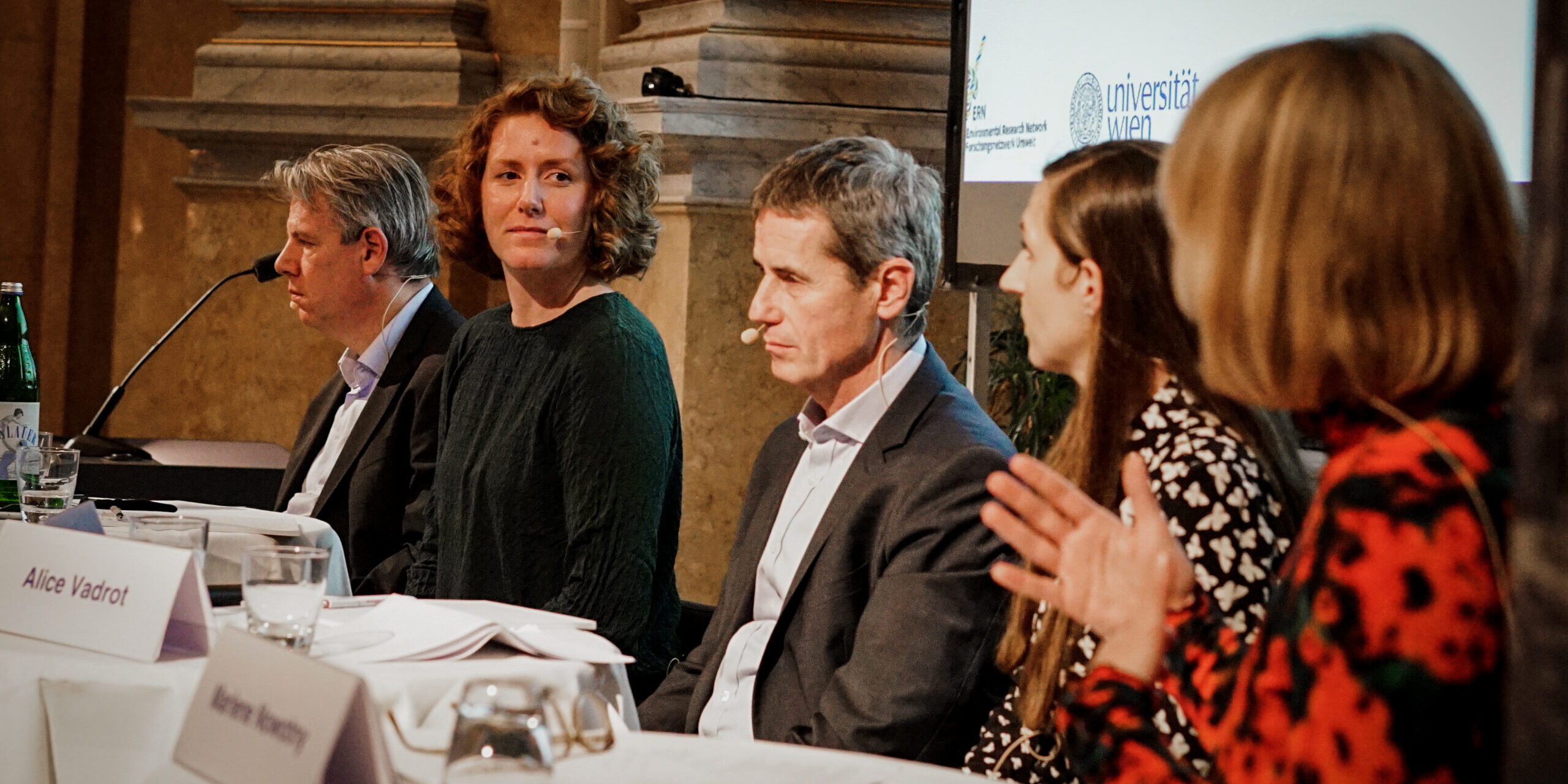In times of acute crises such as the Ukraine war, inflation, or the energy crisis, the question arises whether the climate crisis still receives adequate attention. Is environmental policy capable of addressing the problems of the environment? Experts provided different perspectives on this topic during the “Umwelt im Gespräch” (Environmental Dialogue) event on October 18, 2022.
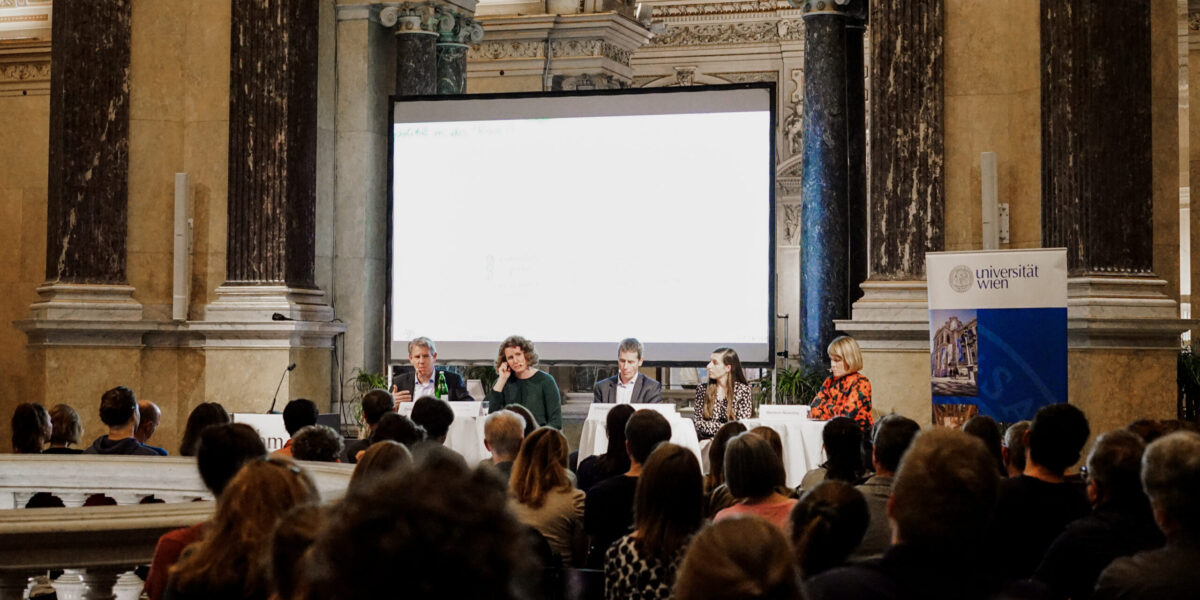
The eighth edition of the event series UMWELT IM GESPRÄCH (Environmental Dialogue) took place on October 18, 2022, once again in the dome hall of the Natural History Museum. Four speakers, offering different perspectives from science, politics, society, and law, joined the panel discussion on “Environmental Policy in Crisis?”. For the second time since the outbreak of the pandemic, the Environmental Sciences Research Network welcomed both first-time and regular guests.
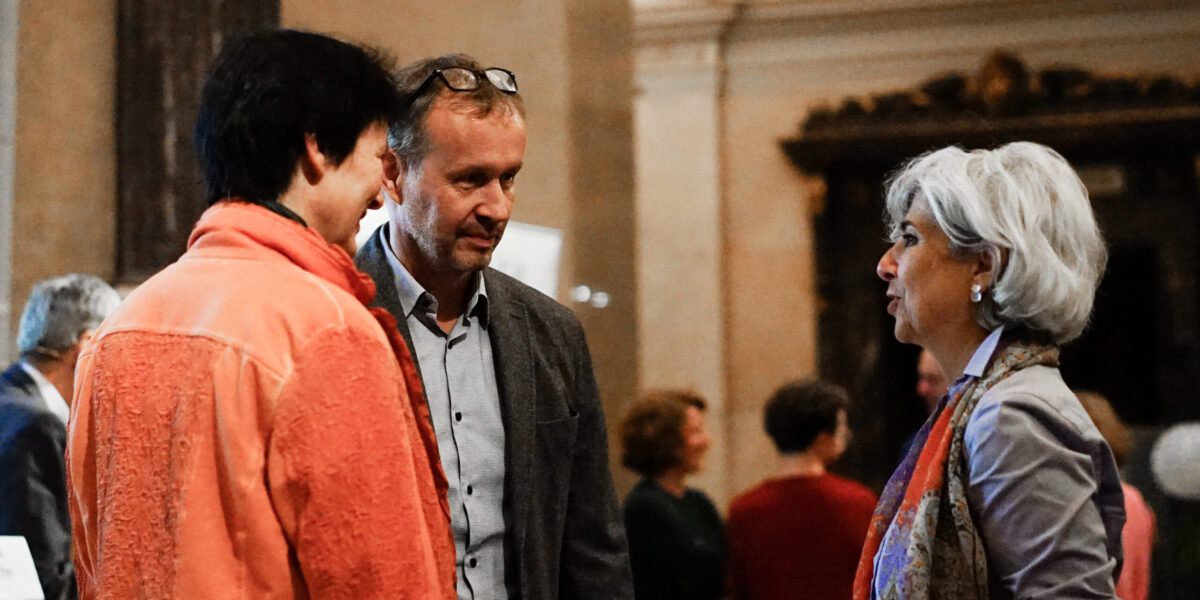
Katrin Vohland, Director General of the Natural History Museum, Thilo Hofmann, Director of the Environmental Sciences Research Network and Manuela Baccarini, Vice-Rector of the University of Vienna (from left to right) welcomed the audience in the packed hall.
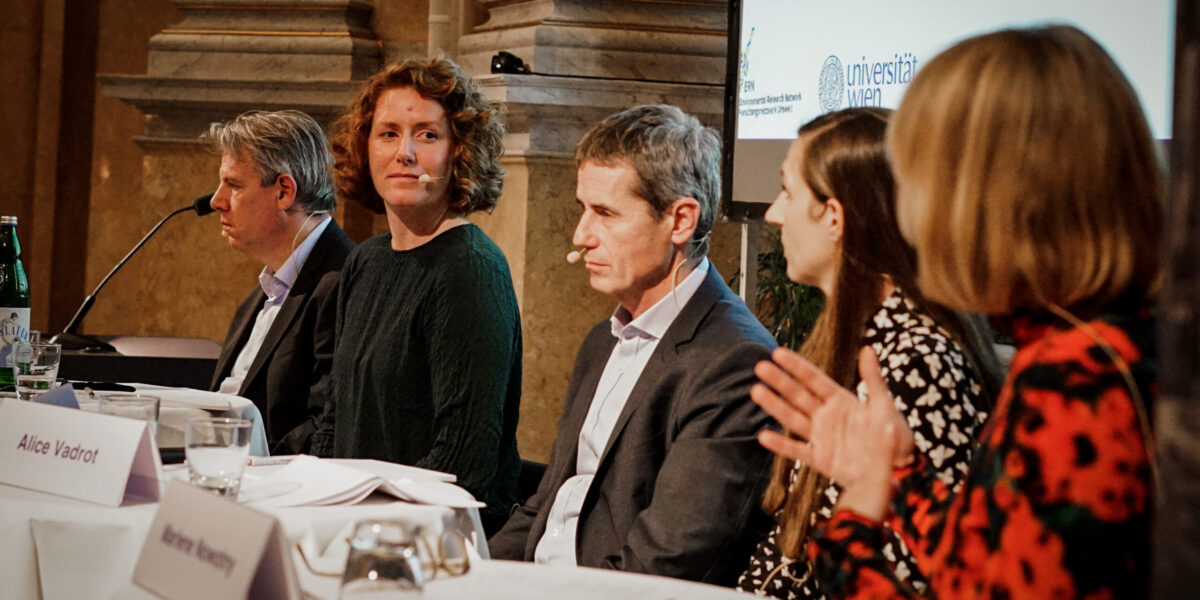
Moderator Marlene Nowotny (Ö1 radio) opened the discussion by asking Fridays-for-Future-Austria co-founder Katharina Rogenhofer for her assessment of current environmental policy from the perspective of the climate movement. According to Rogenhofer, the climate movement has been successful in mobilizing masses worldwide and shaping discourses, but unfortunately, in terms of environmental policy, the movement is still unable to turn words into action. She criticized the inadequacy of climate policy despite the urgency of the climate crisis and reiterated the movement’s demand to co-create new forms of political institutions, rather than simply hoping that the existing ones will listen to them. She illustrated this by referencing the petition for a referendum to combat climate change, for which she acted as spokeswoman, whose demands were not implemented.
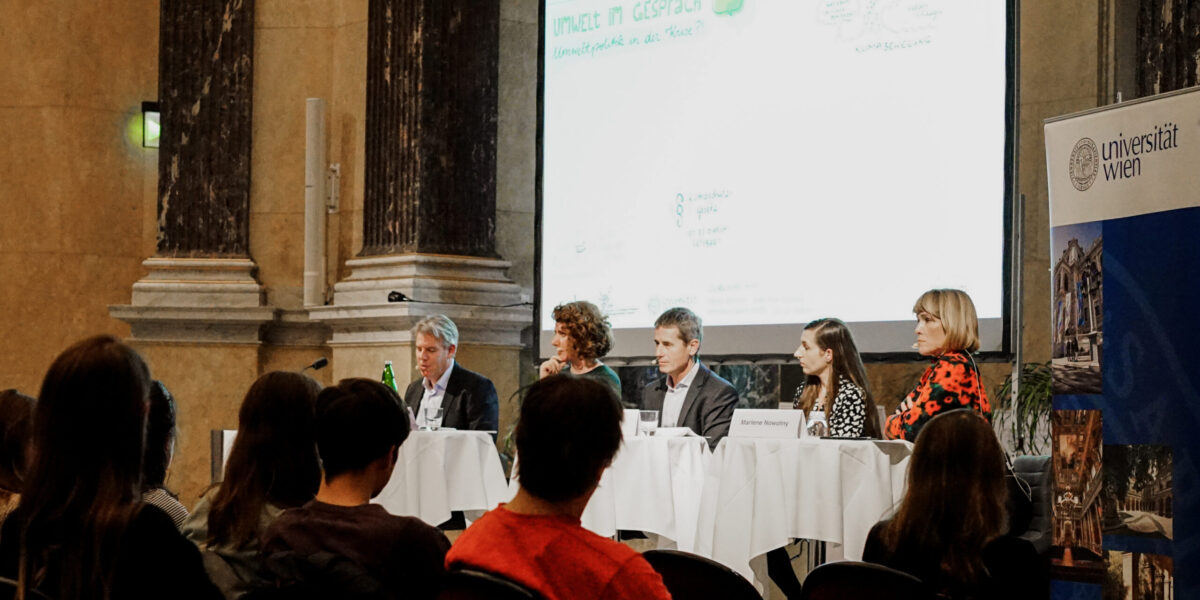
Daniel Ennöckl, professor and director of law at BOKU University, also noted the lack of translation from the population’s increased environmental awareness into actual policies, despite indications that the majority of voters no longer accept politicians’ disregard for environmental issues. Ennöckl identified two key points for an effective environmental policy: First, we must emphasize both the current and intended state of the environment and continuously remind politicians that the climate crisis will render our Earth uninhabitable. Second, we must spread a clear message that our current global consumption patterns are incompatible with climate neutrality.
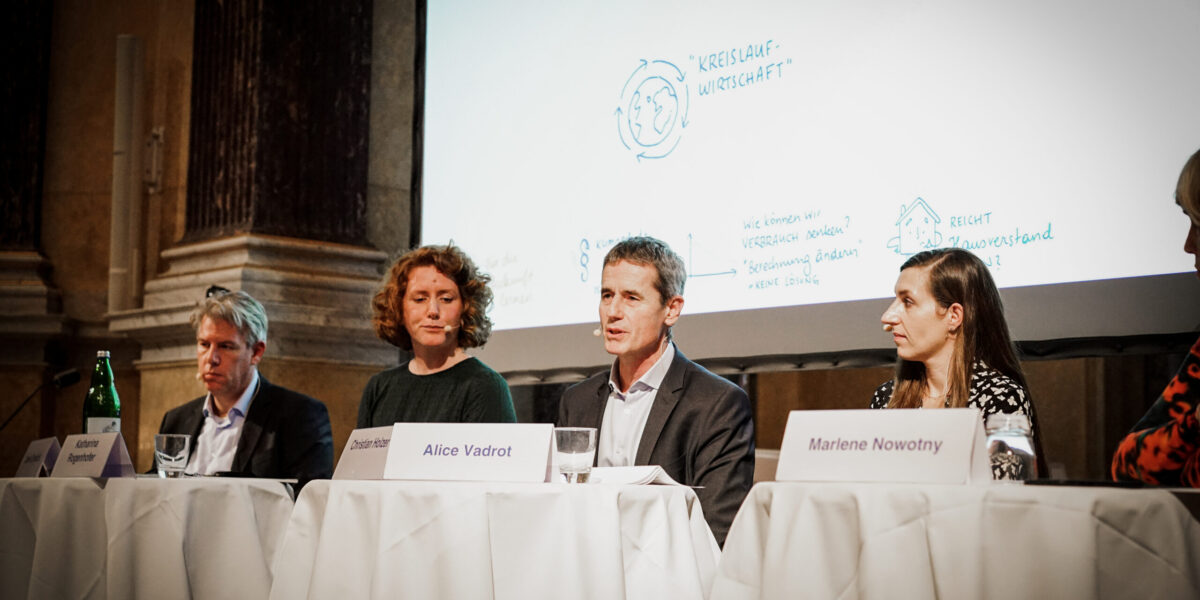
Christian Holzer, Head of the Environment and Circular Economy Section in the Federal Ministry of Climate Action, emphasized the role of recycling in climate protection and described Austria’s resource consumption as harmful to the environment. When asked by the audience whether we need to abandon the idea of growth to change the course of the environmental crisis, Holzer again pointed to the potential of the circular economy to advance climate protection without imposing bans. However, he acknowledged that progress in this area would ultimately be insufficient if we continue to use resources as exuberantly as we do now. He concluded that consumption regulations are necessary.
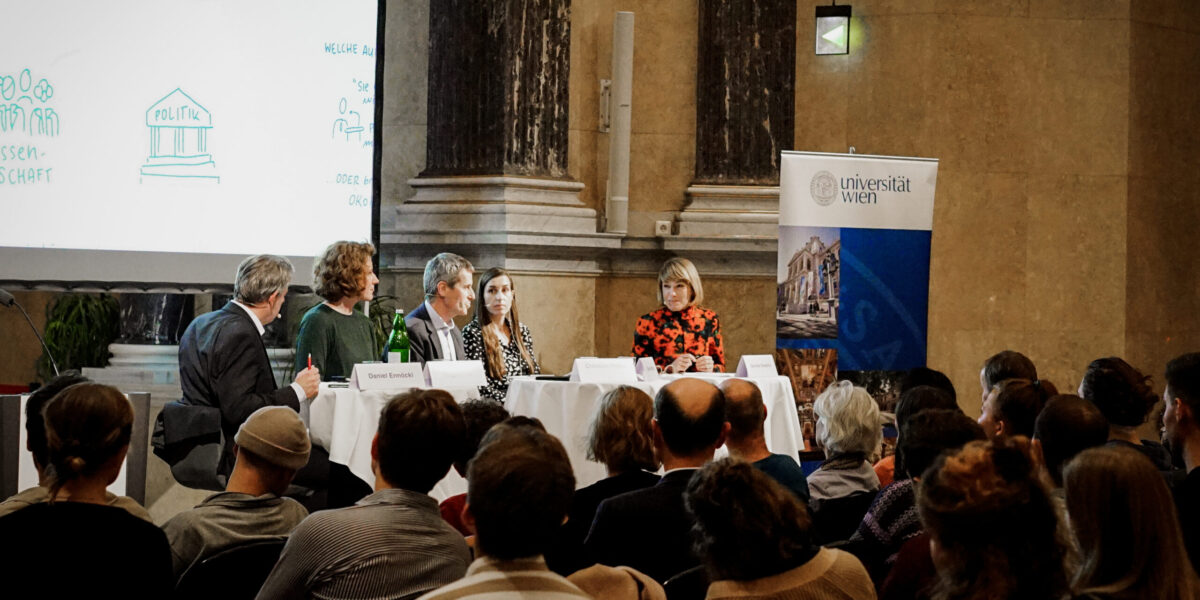
In relation to the implementation of climate protection requirements, Holzer referred to the protection offered by democratic legitimacy, stating that the voice of the public cannot directly translate into law, in part to guard against prohibition politics and populism. He argued that environmental policy is not in crisis, as it has made significant progress in many areas in recent years. In contrast, Katharina Rogenhofer expressed that politics too often hides behind democratic legitimacy, using it as an excuse for slow or non-existent climate change mitigation measures.
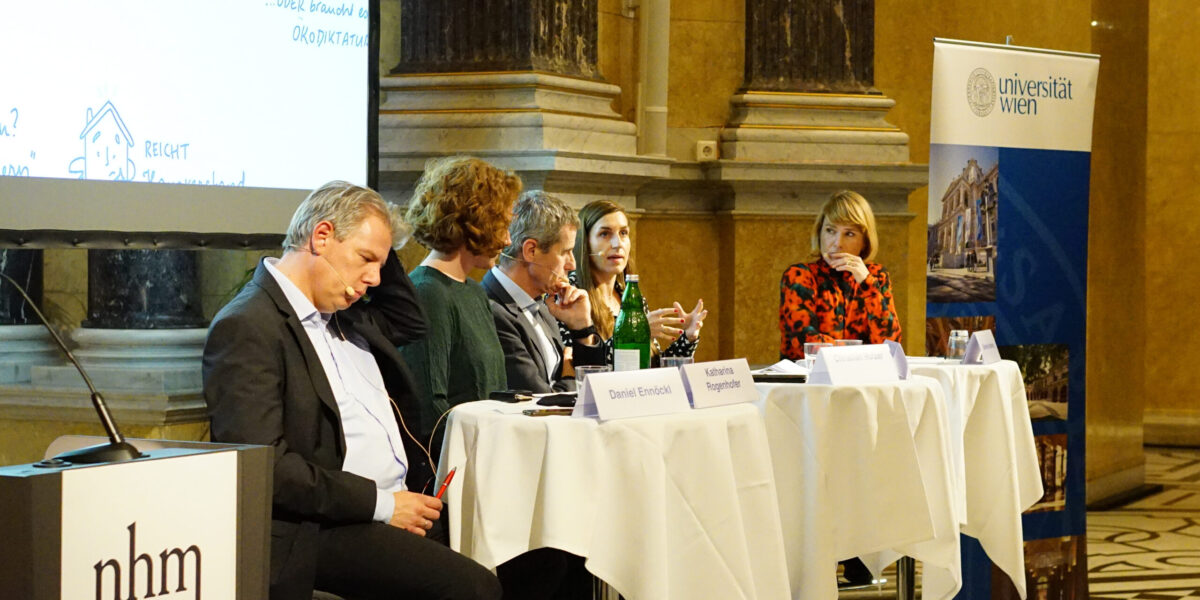
So what does politics need in this country? Alice Vadrot identifies untapped opportunities for advice from academia, which could enable Austria to adopt more progressive policies. According to Vadrot, before imposing sanctions, it is essential to consider them within the context of international environmental policy to clarify who would actually be affected by the sanctions and to what extent. Katharina Rogenhofer, on the other hand, believes that sanctions are necessary because voluntary climate protection measures have proven ineffective. Regarding the sacrifices required for climate protection, she argued that society, regardless of environmental policy, is already (unconsciously) giving up many important things: environmental damage and mass consumption are already affecting habitats and our health. In the long term, these issues demand an even greater sacrifice than an effective climate policy would ever require.
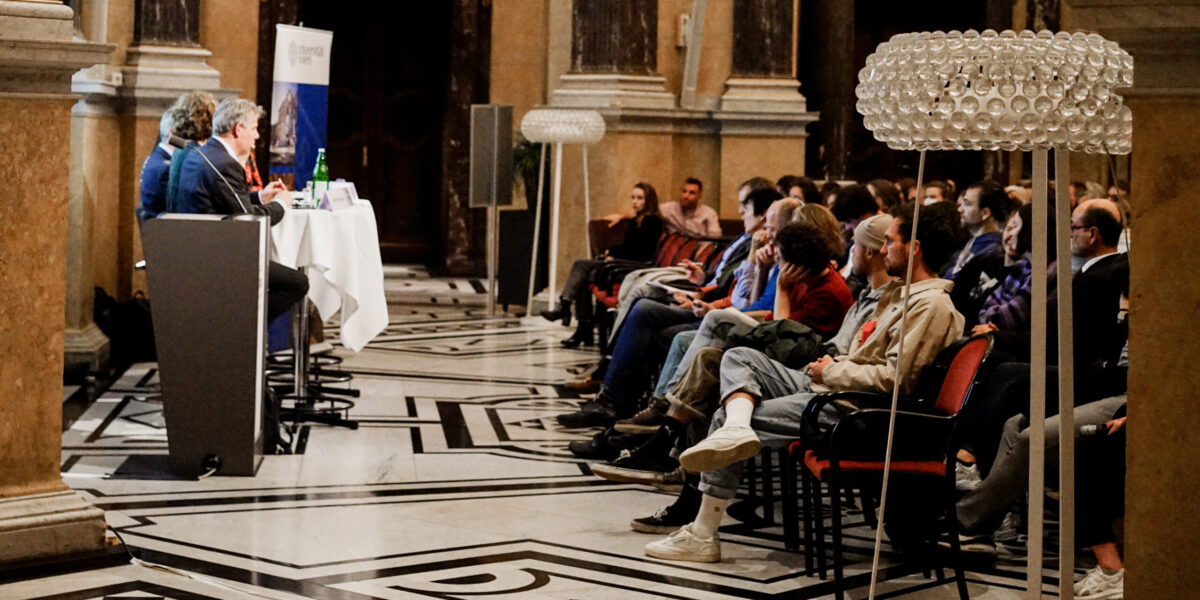
Finally, the speakers identified what they believe is the most important aspect for achieving system change: Alice Vadrot emphasized the importance of a critical mass of voters, while Christian Holzer argued for the need for socio-political change and specific legislative reforms. Katharina Rogenhofer underlined the importance of social commitment and appealed to the general public to stand up against the denunciation of climate demands as a “policy of prohibition.” Daniel Ennöckl highlighted the fundamental right to environmental protection and ecological livelihood as essential for system change.
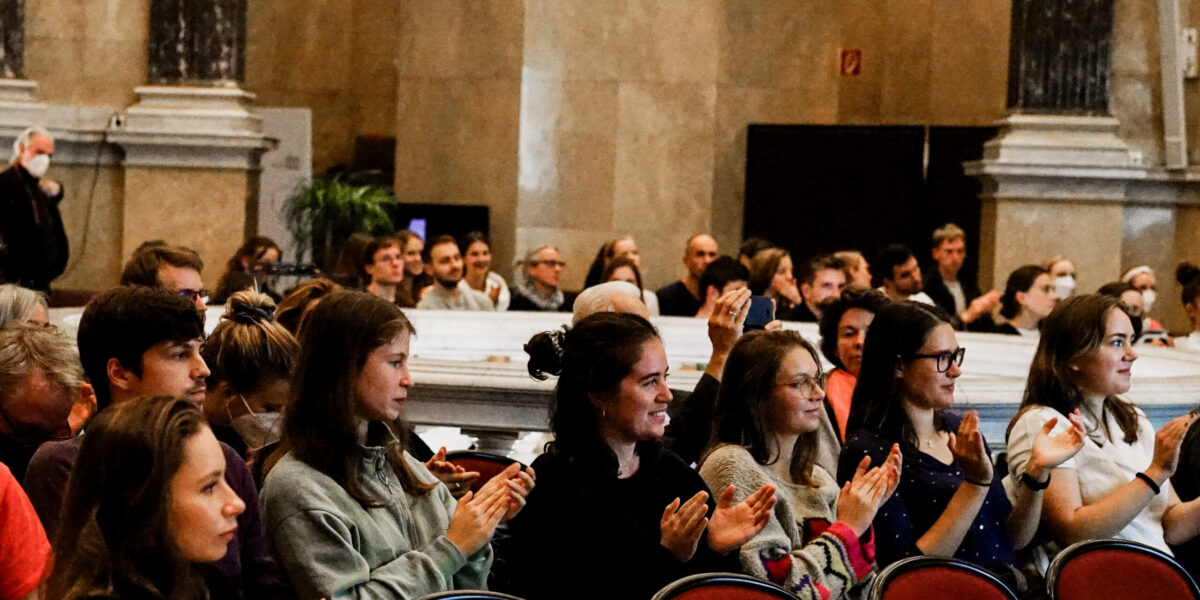
The lively discussion, in which the audience actively participated, came to an end after almost one and a half hours. The diverse perspectives and stimulating debates on the subject of “Environmental Policy in Crisis?” did not lead to a definitive conclusion but highlighted interesting solutions for a more effective environmental policy.
Graphic Recording
von VerVieVas
